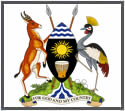Research and Development
Research and development (R&D) activities are crucial for advancing knowledge, improving practices, and informing policy decisions in fisheries management. Below is an overview of previous, current, and future R&D activities under the Directorate of Fisheries Resources, along with our respectful Partners, Agencies and organizations involved.
Previous Research and Development Activities:
- Fish Stock Assessments: Collaborative research projects with universities, research institutions, and international organizations to assess the status of fish stocks in Ugandan waters. This involved stock surveys, population assessments, and ecosystem modeling. Research Findings are accessbile on : Research and Reports
- Fisheries Ecology Studies: Research initiatives to understand the ecological dynamics of fisheries ecosystems, including species interactions, habitat preferences, and trophic relationships. Accessbile on : Fish Species
- Aquaculture Research: Studies on improving aquaculture practices, such as breeding programs for high-yielding fish strains, optimizing feed formulations, and enhancing disease management strategies. Ex: Aquaculture Research and Development Centre
- Climate Change Impacts: Research projects to assess the impacts of climate change on fisheries resources and develop adaptation strategies for fisher communities and aquaculture enterprises. Ex: NaFIRI Climate Change Project
- Social and Economic Studies: Socio-economic research to evaluate the contribution of fisheries to livelihoods, assess the socio-cultural aspects of fishing communities, and identify opportunities for value addition and market development. Accessible on: Research
Current Research and Development Activities:
- Fisheries Monitoring and Data Collection: Continued efforts to collect and analyze fisheries data, including catch statistics, biological samples, and environmental parameters, to support evidence-based decision-making.
- Innovation in Fishing Gear: Research on innovative fishing gear and technologies to reduce bycatch, minimize habitat damage, and improve the selectivity and efficiency of fishing operations.
- Ecosystem-Based Management: Research initiatives to promote ecosystem-based approaches to fisheries management, including integrated management of fisheries and marine protected areas.
- Capacity Building in Research: Training programs for fisheries officers and researchers to build capacity in research methodologies, data analysis, and scientific communication.
Future Research and Development Activities:
- Genetic Resource Management: Research on genetic diversity and conservation of fish species, including the development of genetic markers for stock identification and breeding programs.
- Ecosystem Services Valuation: Studies to quantify the ecosystem services provided by fisheries ecosystems, such as food provision, carbon sequestration, and cultural values, to inform policy decisions and resource management.
- Invasive Species Management: Research on the impacts of invasive species on native fisheries, as well as strategies for their control and management to minimize ecological and economic damage.
- Stakeholder Engagement and Participatory Research: Collaborative research approaches involving stakeholders, local communities, and indigenous knowledge holders to co-design research questions, collect data, and co-produce knowledge for more inclusive and effective fisheries management.
- International Collaboration: Strengthening partnerships with regional and international research institutions, universities, and funding agencies to leverage expertise, resources, and data sharing for addressing common research priorities in fisheries management.
Agencies, Partners, and Organizations Involved:
- Universities: Makerere University, Uganda Martyrs University, and other academic institutions conducting fisheries-related research.
- Research Institutions: National Fisheries Resources Research Institute (NaFIRRI), National Agricultural Research Organization (NARO), and other research institutes specializing in fisheries and aquaculture.
- International Organizations: Food and Agriculture Organization (FAO), World Bank, and other international agencies providing technical and financial support for fisheries research and development.
- Non-Governmental Organizations (NGOs): World Wildlife Fund (WWF), Wildlife Conservation Society (WCS), and other NGOs involved in research, conservation, and community development in fisheries.
- Development Partners: European Union -EU, GIZ -Responsible Fisheries Business Chain Project.
- Private Sector: Fish processing companies, aquaculture enterprises, and other private sector entities collaborating on applied research and technology transfer initiatives in fisheries management and aquaculture development.
These collaborations help to mobilize resources, share expertise, and foster innovation for addressing key challenges and opportunities in fisheries management and aquaculture development in Uganda.


